How Blockchain Technology May Impact Packaging
The rapid advancement of technology has revolutionized many industries, and packaging is no exception. One such technology with the potential to greatly impact packaging is blockchain. While blockchain is most commonly associated with cryptocurrencies, its applications extend far beyond this realm, and its potential to transform the packaging industry is immense.
In this article, we’ll explore how blockchain technology can impact packaging, its benefits, and how businesses like TheBoxCrafting are poised to leverage blockchain for sustainable, transparent, and efficient packaging solutions. We’ll also touch on some frequently asked questions (FAQs) to clarify common queries around this innovative technology.
What is Blockchain Technology?
Blockchain technology is a decentralized, distributed ledger system that allows for secure and transparent transactions between parties without the need for intermediaries. Each transaction or record (known as a block) is added to a chain of previous records, forming a continuous, immutable history. This structure makes blockchain inherently secure, transparent, and tamper-resistant.
Blockchain has already made a significant mark in industries such as finance and supply chain management. But as businesses and consumers demand more transparency, sustainability, and efficiency in their supply chains, the packaging industry is beginning to recognize blockchain’s potential.
Key Areas Where Blockchain May Impact Packaging
1. Improved Supply Chain Transparency
In today’s global marketplace, consumers and businesses are increasingly concerned about the origins and sustainability of the products they purchase. With blockchain technology, packaging can become an essential part of ensuring supply chain transparency.
Blockchain allows all transactions related to a product’s journey—from raw material procurement to manufacturing to retail distribution—to be recorded on a public ledger. Consumers can scan a QR code on the packaging, for example, and view the entire history of the product. This includes information such as where the raw materials were sourced, the environmental impact of the packaging, and the sustainability efforts taken throughout the production process.
By offering this level of transparency, blockchain can provide an incentive for businesses to adopt more sustainable practices, which is increasingly important in today’s eco-conscious world.
2. Enhanced Security and Anti-Counterfeiting Measures
One of the biggest challenges for the packaging industry, particularly for luxury goods, pharmaceuticals, and high-end electronics, is the rise of counterfeit products. Blockchain can provide a solution to this growing problem.
With blockchain, every package can be assigned a unique digital identity, which is recorded on a decentralized ledger. This allows businesses and consumers to easily verify the authenticity of a product. The information embedded within the blockchain can include everything from serial numbers to manufacturing dates to shipment details, offering robust protection against counterfeiting.
In industries like pharmaceuticals, where counterfeit drugs can have dire consequences, blockchain-powered packaging solutions can help ensure the safety and integrity of products, ultimately protecting both brands and consumers.
3. Streamlining Packaging and Logistics Operations
Another area where blockchain can make a significant impact is in optimizing packaging and logistics. Blockchain can help automate and streamline the processes involved in tracking packaging materials, managing inventory, and coordinating shipments.
By recording every transaction in a blockchain, businesses can reduce delays caused by miscommunication and human error. Furthermore, blockchain can integrate with other technologies, like the Internet of Things (IoT), to offer real-time tracking of products as they move through the supply chain. This allows for better forecasting, improved stock management, and more efficient delivery processes.
For packaging companies like TheBoxCrafting, which specialize in creating custom packaging solutions, the integration of blockchain could enhance overall operational efficiency, improve customer satisfaction, and offer more transparent reporting on packaging production.
4. Sustainability and Environmental Impact
As businesses face increasing pressure to reduce their carbon footprint and use eco-friendly materials, blockchain can help track and manage the sustainability of packaging. By recording every step of the packaging process—from material sourcing to production and recycling—blockchain can help businesses prove their commitment to sustainability.
Additionally, blockchain can support initiatives like circular economy models. For example, when consumers return or recycle packaging, the blockchain ledger can record this action, and companies can reward customers with discounts, loyalty points, or other incentives. This not only encourages recycling but also provides businesses with valuable data on how products are disposed of or reused, allowing them to further optimize their sustainability efforts.
At TheBoxCrafting, we understand the importance of sustainability in packaging. Our use of eco-friendly materials in creating custom packaging, such as Kraft Paper Pillow Boxes, ensures that businesses can reduce their environmental impact while maintaining quality and style. Blockchain can play a role in documenting and verifying these eco-friendly efforts, giving businesses an edge in an increasingly competitive marketplace focused on sustainability.
5. Packaging Innovation and Customization
Blockchain may also lead to innovations in packaging design and customization. By integrating blockchain with other technologies, like augmented reality (AR) or digital printing, companies can create dynamic and customizable packaging experiences for their customers. For instance, a customer could interact with a package through their smartphone to access personalized content or discover more about the product’s origin, ingredients, or sustainability practices.
Blockchain can also ensure that all parties involved in the design and production of packaging have access to a secure, real-time record of changes, approvals, and updates. This would streamline the design process, reduce errors, and improve collaboration between teams.
FAQs About Blockchain Technology in Packaging
1. How does blockchain improve the traceability of packaging materials?
Blockchain improves traceability by providing a transparent and immutable record of all transactions related to a product’s packaging. Each step in the packaging process—from raw material sourcing to production to distribution—is recorded on the blockchain, allowing businesses and consumers to easily track and verify the product’s journey.
2. Can blockchain help reduce packaging waste?
Yes, blockchain can help reduce packaging waste by promoting more efficient recycling and reusability. By tracking the lifecycle of packaging materials and rewarding customers for recycling, businesses can encourage circular economy practices and reduce waste.
3. How can blockchain help fight counterfeit products in the packaging industry?
Blockchain helps fight counterfeiting by providing each product with a unique digital identity that is recorded on a public ledger. This allows consumers to verify the authenticity of a product and ensures that only genuine items are sold in the market.
4. Is blockchain technology expensive to implement in packaging?
While there may be initial costs associated with integrating blockchain technology, the long-term benefits—such as enhanced supply chain efficiency, improved security, and better sustainability practices—can offset the costs. Moreover, as blockchain adoption grows, its implementation is likely to become more affordable.
5. What are some examples of companies using blockchain in packaging?
Several companies have started exploring blockchain in packaging. For instance, luxury goods brands are using blockchain to verify the authenticity of their products, and food companies are using it to track the origins of ingredients and ensure product safety. Packaging companies like TheBoxCrafting can also leverage blockchain to improve operational efficiency and transparency in their packaging solutions.
Conclusion
Blockchain technology is set to transform the packaging industry by providing improved transparency, security, sustainability, and efficiency. From ensuring the authenticity of products to enabling more sustainable packaging practices, blockchain has the potential to revolutionize the way packaging is produced, tracked, and recycled. As businesses like TheBoxCrafting continue to offer innovative and eco-friendly packaging solutions, embracing blockchain could play a key role in delivering even more value to customers while promoting responsible practices.
For businesses looking to stay ahead of the curve and adopt the latest in packaging innovation, blockchain offers a wealth of opportunities. At TheBoxCrafting, we are committed to providing high-quality custom packaging solutions, including eco-friendly options like Kraft Paper Pillow Boxes, to meet the evolving needs of the marketplace. Embracing new technologies like blockchain could further enhance the transparency and sustainability of our services, creating lasting value for your brand and your customers.
For more information on our custom packaging solutions, visit TheBoxCrafting’s homepage.

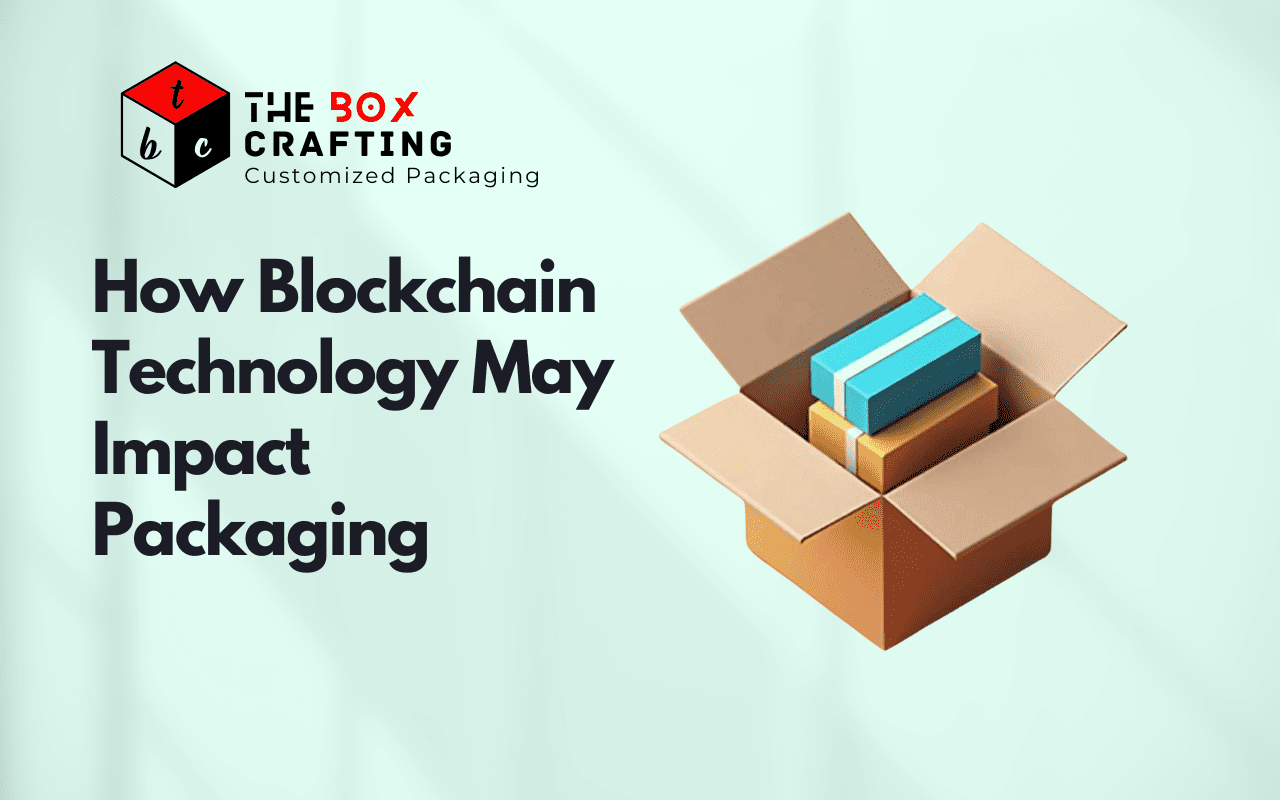
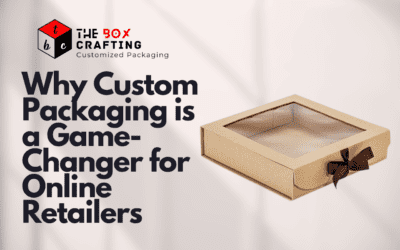
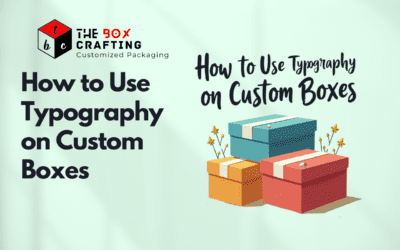
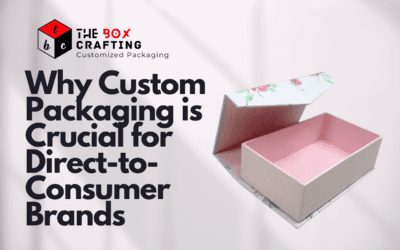
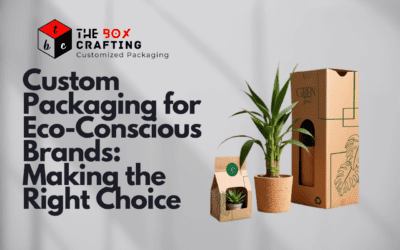
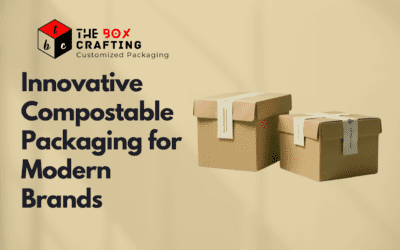

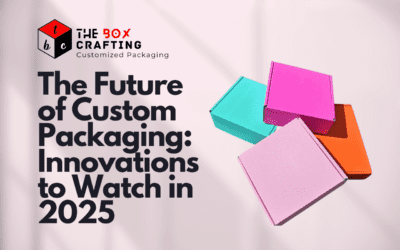
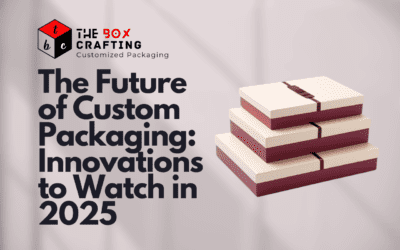
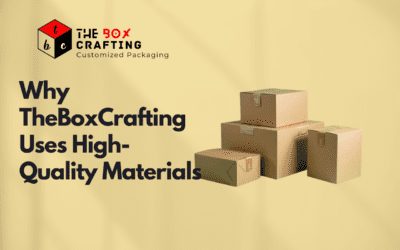
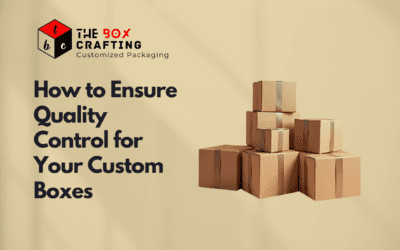
Leave a Reply